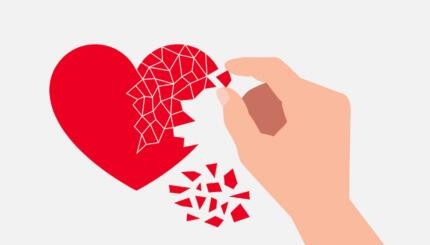A few weeks ago, Matthue Roth, associate editor at MJL, worked on the set of the new CBS drama The Good Wife as an extra. The episode, “Unorthodox,” is about the
Jewish community in Chicago. It airs on Tuesday, Nov. 10 at 10 EDT.
I’ve protested so frequently about the portrayal of Hasidic Jews in movies and TV that one would probably figure that I should know how to do it correctly. Being one myself, I’m pretty quick to catch the common errors: eating in non-kosher restaurants (Pi), mixed dancing (A Stranger Among Us), being in inappropriate situations between men and women (pretty much every movie out there that involves Hasidim in any capacity).
In my head, as I’ve gone through the everyday movements that make up our life, I’ve thought several times about how perfect something would be for a movie — probably due to a healthy amount of egotism combined with a cinematic outlook. Swishing my talis around me before morning prayers would make a great pan! Washing hands from a double-handled cup would look so meaningful in slow motion! Walking down the street with my black overcoat swishing against my calves like a cape is — well, yeah, that’s my fantasy of being a superhero combining with my fantasy of living inside a movie.
The reality of Hasidic Jews on film, from The Chosen to New York, I Love You, is a different story. When we’re not represented as shadowy figures crossing streets in the background, we’re old, un-English-speaking naïfs with poor posture and weird hair. The weird hair part, we are totally guilty of, but the rest of it is due in large part to the dumbing down of culture to its barest essence — when it’s not straight-out making stuff up.
But nothing quite prepared me for this: Sitting at a bridge table at 5:45 A.M. with a dozen men dressed as Hasidic Jews, discussing the new Quentin Crisp biopic. Or, more specifically: how one of the 70-year-old rabbi-lookin’ guys at the table, whose payos are much straighter and more even and perfectly grayed than mine, is telling me about his role cross-examining an actor playing Quentin Crisp in a new film.
The guys at my table have run through the gamut of Hasidim in films. They’re like the gods of Hasidic acting — they’ve been in A Price above Rubies and A Stranger Among Us. They’ve been in sitcoms, dramas, and Law & Order. (This, I will learn, is a benchmark among extras* in New York; as my trophy-wife {we’ll get there} will tell me later that day: “If you haven’t been on Law & Order, you don’t really live in New York City.”) These guys have stories as long as their fake beards. Of Stranger, one is saying: “We were filming, and one of the real guys says, ‘Hold up! That’s not how it’s really done.’ So the director calls cut, everyone stops, and he shows them how to do it. Then they start again, they roll tape, and someone else says, ‘Hold up!’ And everyone else has their own way to do it.”
“Ah,” he cackles, leaning back into his seat, “Jews.”
And the whole group starts laughing.
Elli Meyer, nicknamed “the king of Broadway” and known in the industry as the go-to person to play Hasidic Jews, very kindly set me up with this gig. His IMDB profile lists nearly 50 credits to his name (in reality, it’s much larger) — mostly as “unnamed rabbi” or “unnamed Hasid,” but he’s also played a hillbilly, a trucker, and (once, on The Sorpranos) a Muslim cleric. He put out a call for actors on his Facebook profile — this new television show needs Hasidim!
It was almost like I couldn’t say no. So far, being a Hasidic Jew has only gotten me a whole bunch of fast days that I wouldn’t have otherwise known existed. I figured, it was about time looking like a crazy-haired freak should start paying off. I emailed him my details, and he emailed me back the info. Starting, I should note, with the 5:45 call time.
The camera crew isn’t scheduled to arrive until seven, but makeup and wardrobe have already set up. One of the makeup artists comes over and starts sending people over to the makeshift station, which is really a bunch of mirrors duct-taped to a wall. The other guys are fishing out their sidecurls. They all have pre-made payos, dyed the exact white of their hair, with little clips at the top. Most of them have beard extensions, too.
The younger guys, the professional would-be actors who are here because it’s another gig, and maybe because they happen to look Jewish, are being sent away to be outfitted with fake ones from the wardrobe department. I do a double-take when I see the blond underwear-model guy walk past in his skullcap and tzitzis. The makeup guy does a double-take on me and says: “Oh. You’ve already been.”
Coming on Friday: Part 2. Fake kids! Fake cars! And my fake wife!?


